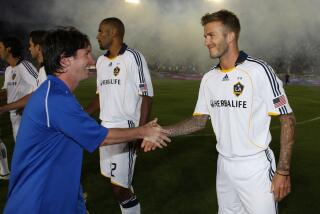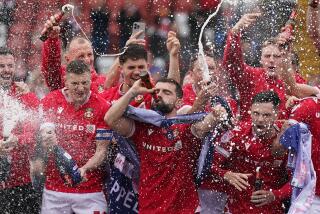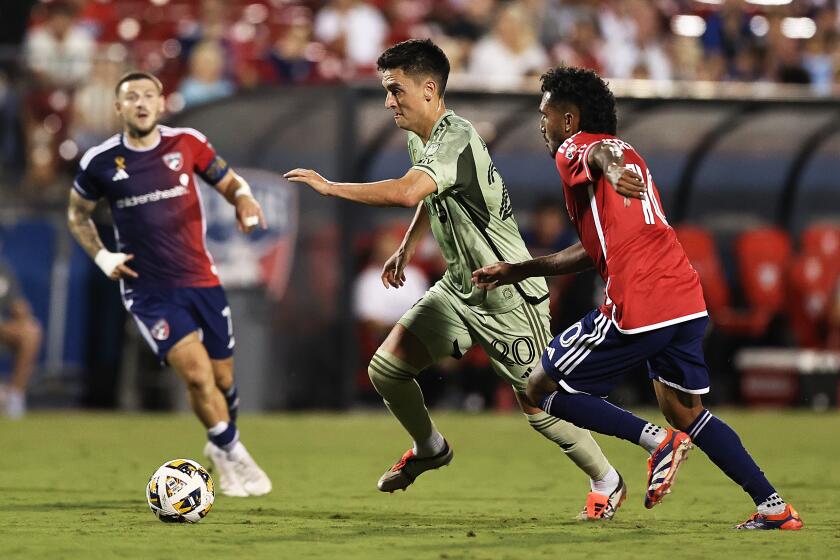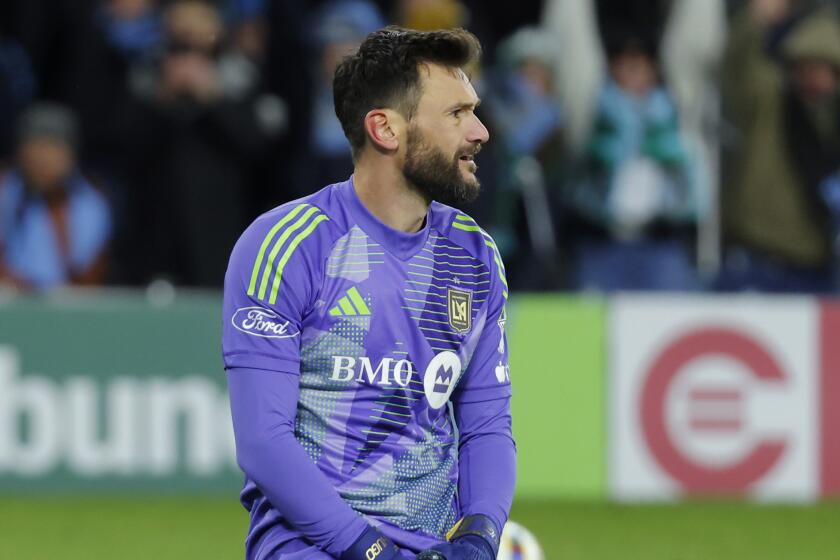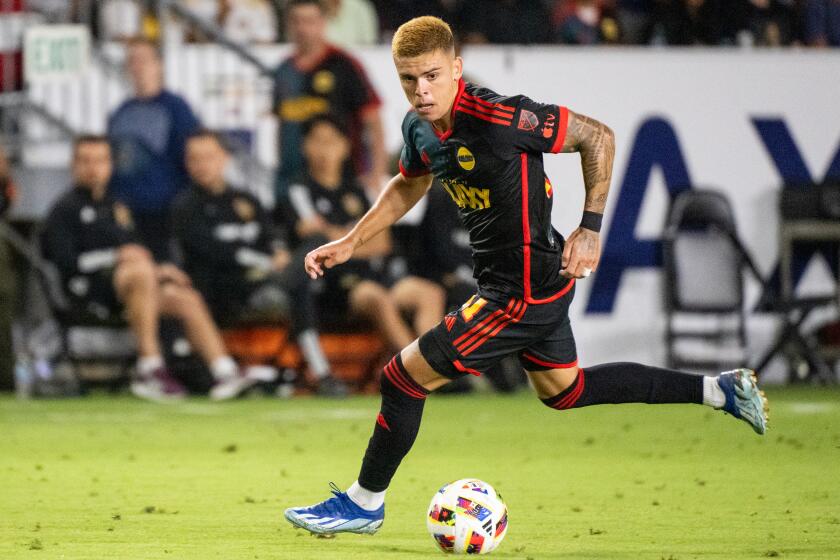U.S. grows into role as Copa America group champion
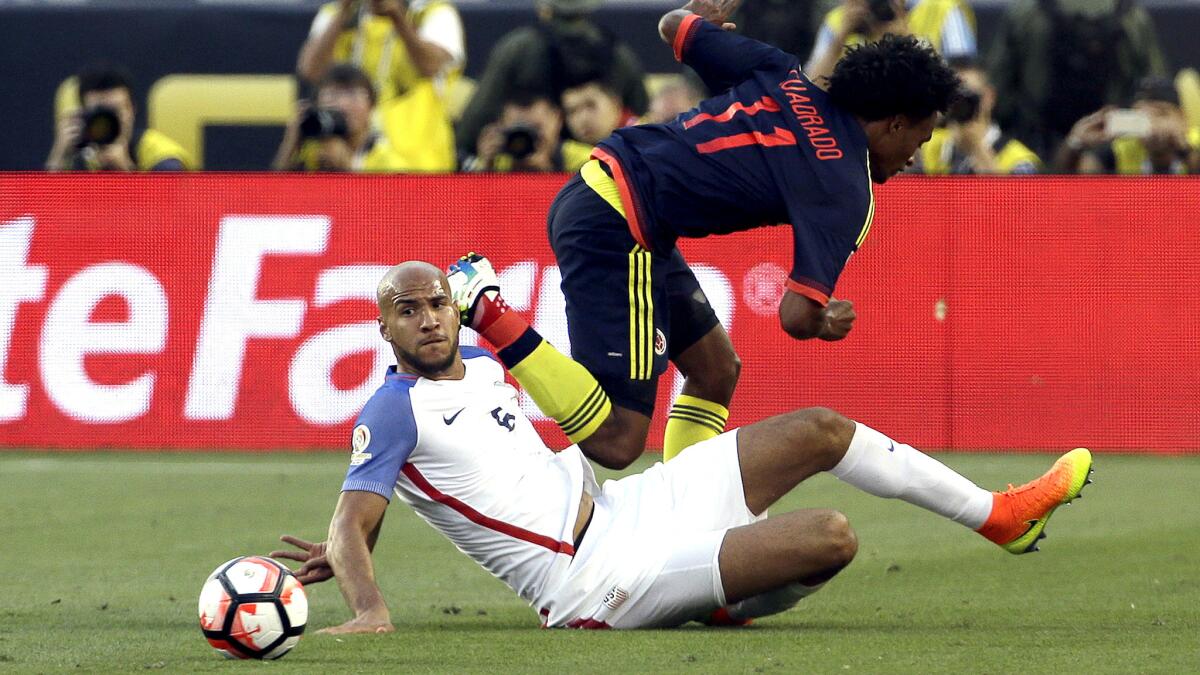
Juergen Klinsmann sometimes sounds more like a life coach than a soccer coach, talking passionately about New Age concepts like learning curves and personal growth rather than strategy or tactics.
And his U.S. national team has certainly given him a lot to talk about over the past 10 days.
Dominated by Colombia in the opening game of the Copa America Centenario, Klinsmann’s squad bounced back by blowing out Costa Rica in its second game. Needing only a draw Saturday to advance to the tournament quarterfinals the team dug deep, and despite playing a man down for most of the second half, held on for a gritty, physical win over Paraguay instead.
When Colombia lost later in the evening the U.S. became group champions, something they had achieved just two other times in a major international tournament since 1930. As a result the Americans’ quarterfinal opponent Thursday in Seattle won’t be Peru, a team it has beaten just twice in 26 years, but Ecuador, a team it beat just 16 days ago.
“This is a huge statement. Because this team has a fantastic spirit,” Klinsmann said. “They have character. And what I really love [about] these guys is they’ll only get better.”
Few players are more emblematic of that old-school spirit, character and improvement than center back John Brooks.
A year ago, Brooks was emblematic of little more than inconsistency and underperformance. After scoring the game-winning goal against Ghana in his World Cup debut in 2014, Brooks found it tough to hold a starting job on a makeshift backline.
Playing a position that demanded discipline and consistency, Brooks offered little of either. He could be slow to react to opposing attacks and was quick to surrender valuable space in front of his goal.
But he learned from his failure, emerging this spring as the kind of dependable center-back the U.S. has lacked since Carlos Bocanegra retired. And in the Centenario he hasn’t just been the team’s best defender, he’s arguably been the best U.S. player at any position.
“A year ago a lot of people were very critical of him,” Klinsmann said. “And I said ‘Well, he has to have those experiences. He needs to kind of make mistakes to grow.’ There’s no growth without failure.
“And so he grew.”
He certainly stood tall in Saturday’s win, repeatedly breaking up dangerous Paraguayan chances, likely preventing two goals. His most spectacular play came in the 11th minute and it set the tone for the rest of the evening, with Brooks blowing up a three-on-one Paraguayan break by playing the ball perfectly and making a well-timed sliding tackle on Miguel Almiron.
Then after DeAndre Yedlin was expelled three minutes into the second half, Brooks came up big time and again, his confidence expanding with each play.
None of that surprised goalkeeper Brad Guzan, who said Brooks’ breakout performance has actually been building since the World Cup, helped by regular playing time with Hertha Berlin in the German Bundesliga.
“He’s grown in the last 12 months in terms of playing week in and week out,” Guzan said of Brooks, 23, who has started 44 times in the last two seasons. “That’s what playing consistent football does for a young player. You guys are starting to see what we see every day in training.”
Klinsmann said he hopes people were watching Saturday’s game back in Germany, where an even bigger role for Brooks with his club team could pay bigger dividends for a U.S. national team in transition.
“I guess all of Europe is watching that,” he said. “This is a big statement what he did. … This is Copa America.”
Klinsmann is looking for another big statement – this time from his team – against Ecuador, the No. 13 team in the world according to FIFA. The knockout rounds of a tournament, he said, are more a mental test than a physical one.
“What we’d love to see is just that they become more confident and courageous and take the game to those big teams,” he said. “Take the game to them. That’s the learning curve.
“This is all about the moment then. This is what they need to believe in. Now it’s becoming a mental learning curve.”
